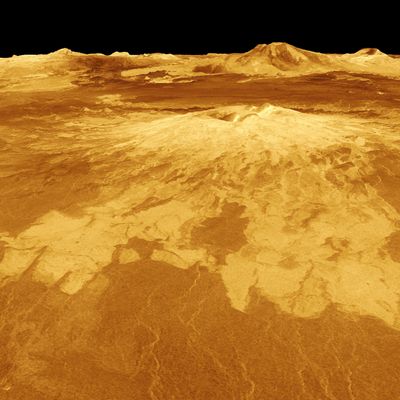
Earth’s hothouse twin Venus has been ignored by NASA for the past three decades, to the dismay of researchers who think it could hold answers to how one became a hellish landscape while the other became a paradise.
That will soon change though. On Wednesday, NASA administrator Bill Nelson announced a pair of missions to Venus that could test our understanding of how these two rocky planets met such drastically different fates. It’s thought that Venus had an Earth-like environment billions of years ago, with water and a thin atmosphere. The last NASA spacecraft sent to Venus was Magellan, launched in 1989.
The missions, known as DAVINCI+ and VERITAS, will use sensors in order to unlock Venus’s secrets. The DAVINCI+ spacecraft would parachute into the thick, hot Venusian atmosphere to learn about its composition in order to assess how it has changed over time and possibly help scientists learn if Venus ever had oceans. VERITAS, on the other hand, is expected to use a special kind of radar imager to peer through the planet’s clouds and map the rugged surface in order to determine the planet’s geologic history and help scientists to understand why Venus developed so differently than Earth. The agency estimates that both missions will launch between 2028 and 2030. Last year, Venus generated buzz when astronomers claimed to detect a phosphine gas that’s also spewed by microbes on Earth.
“Venus doesn’t really have [a PR campaign],” Clara Sousa-Silva, an astrochemist at the Center for Astrophysics in Cambridge, Massachusetts, told Scientific American, “probably because you can’t plant a flag on it.”





























